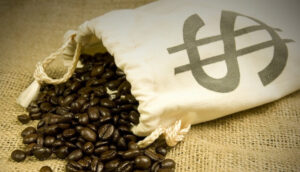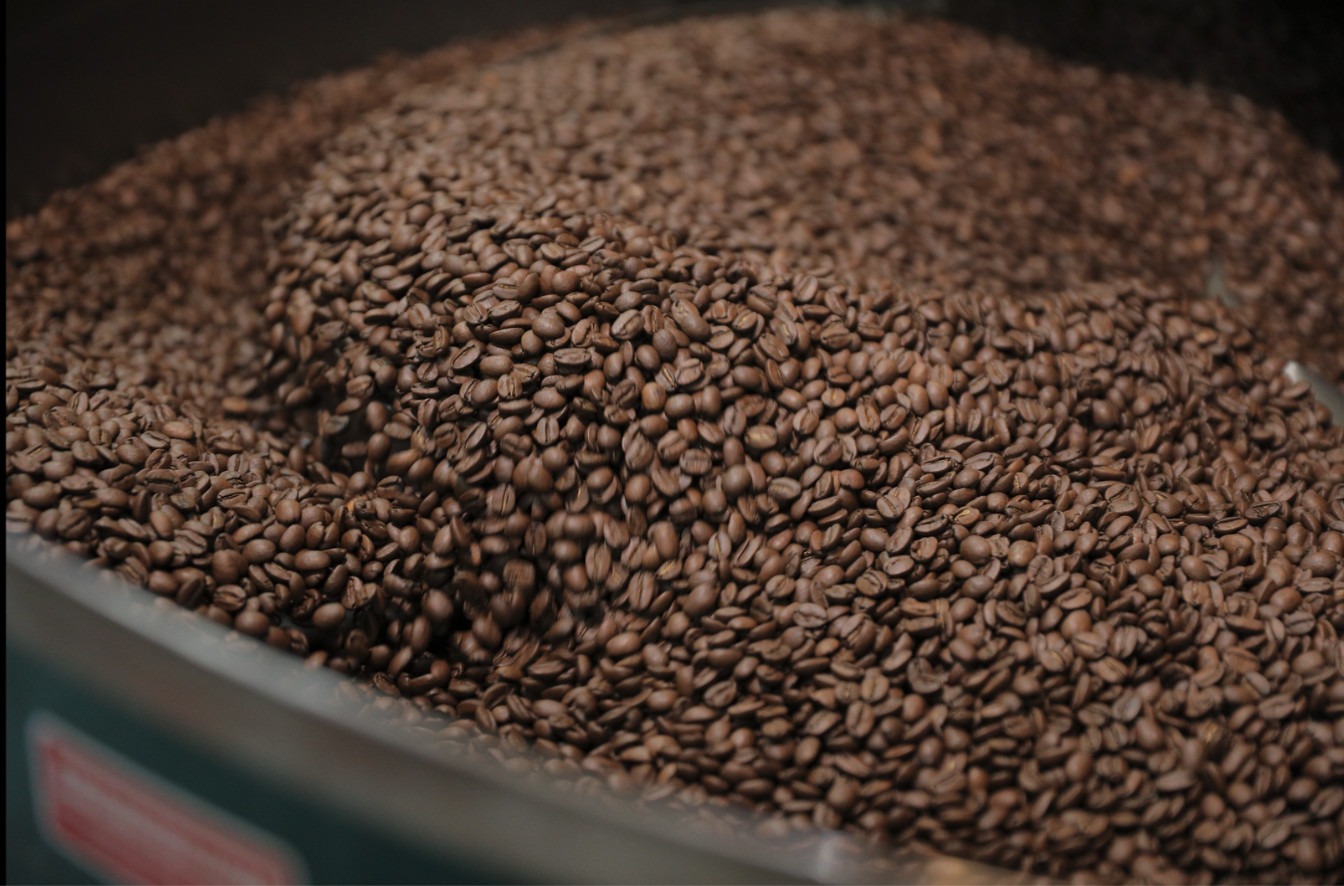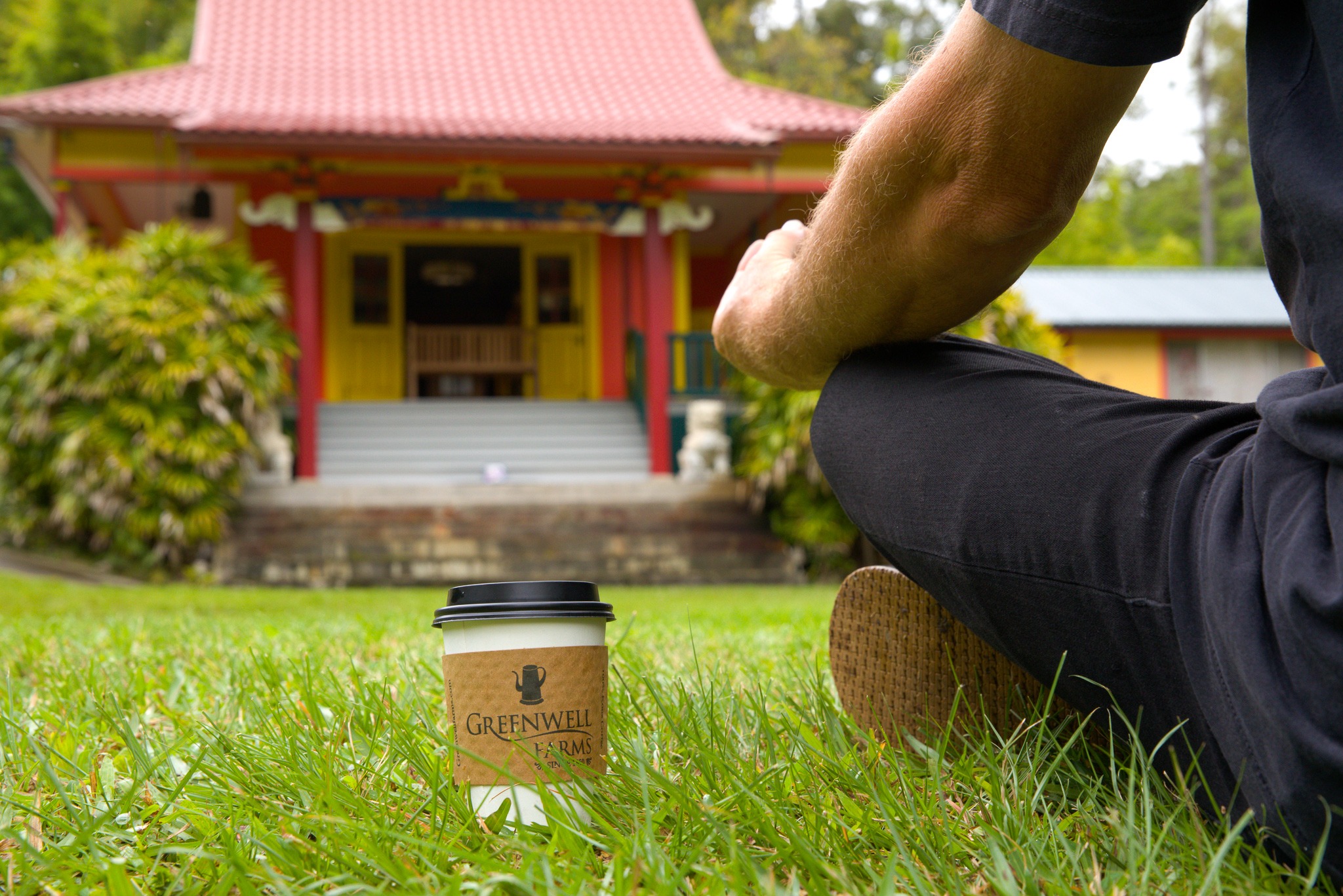Why Kona Coffee Prices Rise
Having just undergone an adjustment in coffee prices for the farm, and struggling for over a year with production costs, hidden costs, market conditions, current and future threats, and new pandemic-related consumption habits, I thought our readers might find it interesting to know why and how their Kona Coffee Prices increase.
A price increase is never taken lightly and always undertaken with deep care and consideration of many factors, along with internal strife, knowing that we will be asking our valued customers to pay a little more.
It means losing some customers, it means angering some, which is always hard as every one of our customers is important. So let’s examine what goes into a price increase, what kind of strategies companies use, and why in the end, 100% Kona coffee is still a value.
Labor plus Supply and Demand=Prices
During our tours, when people ask us why Kona Coffee is so expensive, we usually point out the 2 main drivers. As Kona coffee is 100% hand-picked and requires us to bring in workers, house them, and follow all of the H2A Visa protocols, this is a very expensive way to get coffee off of the trees.
After that, there is a tremendous amount of work to prepare coffee beans for roasting. Labor costs continually rise, the price of transportation, food, electricity, even taxes are not static.
The State of Hawaii has very expensive land and is in very limited supply. As Hawaii is geographically isolated, shipping costs for fertilizer, equipment, etc. always come at a higher price on the islands. Our industry is regulated by both Federal and State laws that many coffee-growing regions in the world don’t have to deal with. The simple fact is that the cost to produce Kona Coffee is very high.
The second major driver is supply and demand. At around 2.7 million pounds of coffee beans produced within the Kona Coffee Belt each year, that is under a tenth of a percent of the world’s coffee supply.
We have roughly 800 small farms in Kona that grow coffee. Compare that to over 530,000 in Colombia. Because the growing conditions in Kona are so unique and they produce a coffee like no other, there is a huge world-wide demand for Kona coffee. Small supply, large demand, means high prices.
The Simple Basics
In the face of rising costs, surging demand, new threats to the coffee industry, and changing consumer habits, how do companies deal with this ever-changing landscape to stay competitive? The answers can be both simple and complex. First the simple.
Rule number one, a company must stay profitable. There are a lot of things that can be done to make that happen, but a company has a responsibility to its employees, stakeholders, and sub-contractors to stay in business. A company works within its margins but needs the ability to invest in infrastructure and maintain growth. Once a company continues to operate while losing money, they go the way of blockbuster video.
Next, the company must produce goods or services that satisfy a need. There are many approaches to this but if your goods are not up to par, others will come in and take your place. In the ultra-competitive specialty coffee market, quality and freshness trends, new concepts in packaging, evolving views about roasts, and subscription services continually require more time and attention. We must work harder to maintain quality.
Our founder, Henry Greenwell, first placed an ad in the Pacific Commercial Advertiser in 1868, advertising for his Kona Coffee. Back then, he had one ad, word of mouth, and a reputation for quality to drive business.
Now, what is known as customer acquisition costs have skyrocketed with endless advertising channels on Facebook and Instagram, YouTube, and Twitter. There is so much out there competing for your attention, the ability to connect with those interested in your products has gotten more difficult, aggressive, and costly.
Lastly, where Kona coffee was once considered a 5 to 1 reduction from cherry to finished bean, damage from Coffee Beetles and fungi have reduced output to 7 to 1. Seven pounds of coffee cherry to make a pound of Coffee beans. That means farmers have to do more work, bear more expense for less coffee.
The Complex Basics
Companies now look at this landscape and decide how to respond. Do they try to lower operating costs? Do they hire fewer people? Do they go after more customers? Do they raise prices? What are the strategies they employ to maintain quality and still survive as a company?
Many coffee companies have employed the smaller bag concept. Keep the same price but put less coffee in the bag. You will find 7oz. and 14oz. coffees all over the internet selling for the same price as 8oz. and 16oz. We decided against it because it seems a little deceitful. Sure, bags are labeled but how many consumers read the fine print?
Some companies employ the better quality at a premium concept. Higher price but roasted to order, all about service and education. We have always valued service and strive to share information with our coffee family, but do not seek to be the most expensive. In fact, we look at margins based only on the cost for us to produce that coffee, not an artificial premium.
We have even seen some companies move in the other direction, with 10% Kona blends. These harness the Kona name while filling their bags with up to 90% inferior coffee. Lower quality, better margins, tricking the consumer. We are true advocates of complete honesty and transparency to the consumer for what is in the bag.
Our Company Standards
We decided that we would do what we have always done. Offer a high-quality, fresh product at a price that is reasonable and true to our company’s ability to continue to engage in farming for generations to come.
We decided to leave our bags at 8, 12, and 16 ounces. We eliminated the 5lb. bag as coffee science research has shown without a doubt that the freshness of the beans degrades rapidly in those quantities. Big bulk bags were a 1980’s trend and it was time (although painful for many) to modernize in order to maintain freshness.
We continue to small-batch roast our coffee and send out the freshest product that we can. Over 3,000 customers each month receive their coffee via subscription to our coffee club, and we are committed to giving them the best 100% Kona Coffee money can buy.
We have examined a number of cost-saving measures by a smaller staff and by using modern software to track inventory and calculate costs more accurately. These measures help mitigate an increase in prices.
Finally, after six years of keeping our prices stable, we had to initiate an increase on some of our coffee products. If you shop comparable products at price per ounce for gourmet 100% Kona Coffee, you will still find us in the “very reasonable” category.
In the end, we know that we won’t be able to please everyone. Some will simply give up. Some will shop around and come back. Others will absorb the cost of a product that gives them a lot of joy.
Just know that we are committed to bringing you the finest, gourmet processed, master-roasted 100% Kona coffee, at a price to value that is competitive with any farm in Kona. Aloha!
But why is Kona Coffee so expensive?

Kona coffee is renowned for its exceptional quality and unique taste, but its high price primarily stems from several key factors. In this paragraph we will discuss why the prices of Kona Coffee are so high.
1. Limited Geographic Region
Kona coffee is exclusively grown in the Kona district of Hawaii, a small region on the western slopes of the Big Island. The combination of volcanic soil, favorable climate, and ideal elevation makes this area perfect for cultivating coffee. However, the limited land available for coffee cultivation restricts the overall supply of Kona coffee, contributing to its high price.
2. Labor-Intensive Production
Kona coffee is typically hand-picked to ensure the selection of only ripe cherries, which requires considerable manual labor. The rugged terrain and steep slopes of the Kona district make mechanical harvesting challenging, increasing the reliance on human labor. The cost of skilled labor in Hawaii, combined with the time and effort involved in hand-picking, adds to the overall expense of producing Kona coffee.
3. Strict Quality Standards
The Kona coffee industry adheres to strict quality regulations and standards enforced by the Kona Coffee Council. Only coffee beans grown within the Kona region can be labeled and sold as “Kona coffee.” This stringent certification process ensures the authenticity and quality of the product, but it also adds to the production costs.
4. Premium Reputation
Kona coffee has gained a reputation as one of the finest and most sought-after coffee varieties in the world. Its unique flavor profile, characterized by a smooth, mellow taste with hints of chocolate and nutty undertones, has captivated coffee enthusiasts globally. The premium reputation and high demand for Kona coffee allow producers to command a higher price in the market.
5. Cost of Land and Farming Practices
Real estate in Hawaii, especially in the Kona district, is expensive, which drives up the cost of land for coffee farmers. Additionally, sustainable farming practices, including shade-grown techniques and organic cultivation methods, are often employed by Kona coffee farmers to preserve the delicate ecosystem and maintain the quality of the beans. These practices can increase the production costs, contributing to the higher price of Kona coffee.
6. Traceability and Sustainability
Kona coffee is known for its traceability, allowing consumers to know the origin and source of their coffee beans. This transparency comes with costs, as it requires meticulous record-keeping, proper labeling, and adherence to sustainability practices, such as maintaining ecological balance and preserving the natural resources of the region.

Matt Carter is a retired teacher (1989-2018), part-time musician, farmer, and currently manages Greenwell Farm’s Tour and Retail Store Operations.







That was one of the most thorough and to-the-point discussions of a price increase from a retailer I’ve read (and I’m a public company CFO!). Good summary.
We understand your problem with a price increase but if you don’t increase your price and go out of business we as a customer loose what we love,your coffee expertise.
The greatest things in life come with a price.
From the first time, my wife and I toured your farm and tasted the coffee, I knew I wanted to continue enjoying your coffee. With the club, I can do this while living in Michigan. And, when you look at the world market pricing of all goods and see increasing prices, Greenwell is not out of step. I do appreciate the honesty about not reducing sizes, to maintain price. I find this everywhere, when shopping.
Thanks for the honesty and quality of product.
Thanks for the explanation – it is a well organized response to maintain the quality of coffee for Greenwell and provide the best service to your customers. I am a retired teacher and college administrator who believes in quality and customer service – which is well interspersed in this response to your customers. Since my wife and I visit Greenwell Farms each winter – we overwinter in Waikoloa each year for two to three months since one of our sons works for Four Seasons and lives with his family in Waikoloa – and since another son owns a condo in Waikoloa, we are some of your best small customers. As you can tell, I order quite a bit of coffee from you directly via mail. And, since I am now a tree farmer on the farm on which I grew up near Quincy, Illinois, I understand all the issues with production agriculture – although not directly with the coffee plant.
Again, thanks for the explanation – it is a good one. Maintain your quality standards and don’t succumb to the rush to quantity without maintaining quality. Well done. Larry Fischer
I can appreciate your predicament regarding the price of your coffee. But the reality for most middle class consumers is that at $32/lb it was a luxury I would splurge for occasionally, but at $44/lb it is one that I can not justify.
Mahalo for the information. I appreciate the quality of your product. I also want to continue to support a company that I respect and repeatedly visit each time I’m in Kailua-Kona.
Thank you so much for the article and upfront frankness. We visited your farm back in the 1990’s and have been diehard fans ever since. Our previous employment placed us in various countries throughout the world and as Coffee Club members your coffee has accompanied us.
Everyone who has ever come to our home and tasted your coffee raves about it. It is simply the best. We are definitely coffee snobs and think your product is the only coffee worth drinking! We wouldn’t want to ever have to do without!
Dear Mr. Carter, I applaud your explanation. It is succinct, well-written, and provides an education to those not familiar with supply & demand and basic business economics. My wife and I have enjoyed Greenwell Farms coffee since we first visited the plantation on our honeymoon in 1995. Over the years we have visited Hawaii and always stopped at the farm when we are in town and we have passed along our love of good coffee to our grown children. We wish Greenwell Farms much future success.
What an awesome article! Kona is still the best coffee in the world and Greenwell is the best Kona coffee. We have enjoyed the many visits and tours and appreciate the top notch customer service you provide. Need to raise prices to keep the quality? Go for it! We will continue to be a Greenwell customer!
BTW: you got nothing on gas prices. Here in California our gas has gone from $3/gallon to $4.5/gallon in just 6 weeks! Now that’s a bitter aftertaste!
Outstanding article. Informative and candid.
True facts are helpful to articulate.
I have been to your farm, seen and heard your process.
Thank you-
Just keep doing what you’re doing. We come to the Big Island every winter, well not this year but hopefully Feb of 22? Ever since finding Greenwell we buy it as our premium brand. Our favorite, Private Reserve will remain exactly that, our favorite. We drink coffee usually every day but Sundays are usually PR day. We have learned that picking a great coffee is much like picking a great wine. Be aware of the subtle tastes and the differences in the coffee.
We did buy six pounds of PR just recently to hold us over for a while. We appreciate your product and the love that it takes to produce a great coffee.
Regards from Canada
Matt,
Your coffee is so good that I don’t care about the price. I don’t even know what it is.
Mike Millard
If we buy 5 pounds of coffee, we have to buy at the 1 lb price @ $44? Would we receive any type of discount for a larger quantity?
Unfortunately, we have done away with the 5 lb discount.
Hopefully, you can order it in smaller quantities over a shorter interval
to maintain absolute freshness.
Unfortunately we have done away with the 5lb discount.
Thank you for this explanation! When the news of the price increase came, my first reaction was to go back to some very good locally roasted coffee. I also checked out prices of some other Kona producers and then finally decided I’d rather drink your coffee than any other. That’s what I will do until or unless the day comes that I truly can’t afford it.
I thank you all for the kind words and the support. We truly appreciate each and every one of you!
Aloha,
I appreciate that your company took the time to explain your decision and the need. As a local resident and part of the middle class that enjoys your product and the hard work of your family, it does sadden me that I will be one of those folks who can no lo get afford and enjoy your product. I understand as a former COO now retired of the difficulty of running a company, but as a company and a leader it is also your responsibility to try to create innovation inside your business that maybe outside the norm to stay competitive in the market. There is something sad about living where it is grown and have now been excluded from it. I wish you and your family all the success.
Good explanation!
Most people can handle a yearly 1-2% price increase per year for all the reasons you have mentioned but any higher usually put their business at risk
My late wife, Sheryl (who passed away during the pandemic in August of 2020), and I toured the Greenwell Farm facility in September 2002 for our 25th wedding anniversary. We were immediately impressed with the coffee and the process of production. When we joined the Coffee Club a couple of years later, there was a well-loved “surprise” in our mailbox every couple of months and it was like Christmas four times per year.
I actually computed an approximate “per cup” cost of Greenwell Farms coffee and it came to about $0.60 per cup! That’s a “shade’ less than Star****s or Scooters (a local outfit). So if you need to raise your prices, I’d rather support the growers in the Kona area for a fine crop than the International
best seller that never tastes right.
My wife and I discovered Greenwell – almost by accident – in 2009 and immediately joined a tour. My risk-adverse wife was first in line to try a fresh cherry, and later my suprise converted to stunned amazement when she started to taste the array of coffee samples… because I didn’t know she liked coffee (after almost 40 years). We both decided “Peaberry is like no other”. Australia has strict quaratine laws which limit private import of green coffee beans, so with considerable trepidation we added some bags of whole bean to our luggage and were waved through after declaring (phew!). Since then we determined that we could import our own and have done so ever since. The price rise is high, but we pay an huge freight charge in any case – which is also now higher. However, as @Jeff Adler says its the cost per cup that is important. So we will continue to buy several months supply with an eye on the minimum freight cost per cup and absolute joy from every cup. We love the City Roast, but also Jeni-K, Onouli, Peaberry and Choc Mac. ( PS I have two good friends nearby who are both highly successful boutique coffee roasters and are quite exceptional – so I frequently get to try their outstanding blends – but many friends also say ” Can we meet at your house and have some of that amazing coffee!” 🙂
Prior to the pandemic, we toured your farm. This was a thoroughly enjoyable experience and once restrictions fade into the rear view mirror, we will travel to your farm yet again.
Your post explaining the many factors considered for coffee pricing was not only candid, but truthful. Something that is in sort supply these days. I applaud your honesty and look forward to more news.
Peaberry is our winner. I have never tasted coffee so smooth and full bodied with low acid and a clean finish. I will continue to be a customer since I now drink no other coffee.